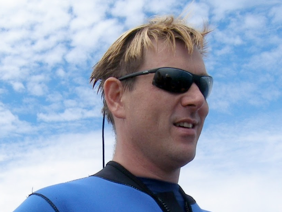Research Interests
Roughly 80% of marine species (more than 90,000 currently described species of vertebrates, invertebrates & algae) have a biphasic life cycle in which they produce planktonic propagules. These larvae often have an obligate period during which they are incapable of metamorphosing into the adult body form, and for many species, the potential for dispersal in the ocean currents is far greater during this planktonic larval stage than during the benthic adult stage. I am broadly interested in the causes and consequences of larval dispersal, the cues which larvae use to assess the suitability of a site for settlement, and the variable ability of many species to delay metamorphosis from the juvenile to the adult body form.
Population Genetic Structure & Phylogenetics of Marine Invertebrates
One of the most powerful tools introduced to Marine Biology over the past few decades has been the widespread acceptance of molecular approaches to answering long-standing questions. However, I view these approaches as a tool to answer interesting questions, rather than a pursuit in-and-of themselves. I consider myself to be an ecologist who applies molecular techniques rather than a molecular biologist per se, and the question has to come first. These tools allow us to answer a diverse set of questions regarding such important issues as species identity and mapping of life-history characters, patterns and magnitude of larval dispersal, connectivity issues for the design of Marine Protected Areas, and origins of invasive species. My dissertation was a survey of year-to-year variation in population dynamics and genetic patterns of the porcelain shore crab, Petrolisthes cinctipes. This study has greatly changed my understanding of how oceanographic forces impact gene flow in marine species with pelagic larvae, and much of my lab currently focuses on similar types of questions.
Marine Ornamental Culture & Aquarium Science
I am interested in aquarium science and the culture of marine ornamental species at a variety of levels. First of all, I have always been interested in the husbandry of marine ornamental species. But beyond that, I believe that it is both an important and rewarding pursuit to introduce primary research into the aquarium industry and vice-versa. Therefore, I write for a number of different hobby magazines on a regular basis, and I try to have at least one aquarium science research project underway in my lab at any given time.
Research Professor
Hawaii Institute of Marine Biology
SOEST, University of Hawaii
PO Box 1346
Kaneohe, HI 96744
phone: 808-236-7401
toonen@nullhawaii.edu




